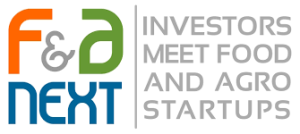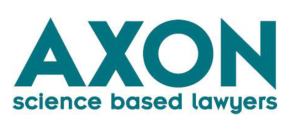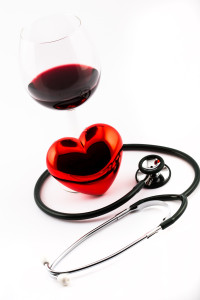Posted: March 3, 2017 | Author: Karin Verzijden | Filed under: Authors, event, Food, Health claims, Information, Nutrition claims |
 During the two days event in Wageningen, on 17 and 18 May this year, food start-ups will have the opportunity to give their best before an audience of seasoned investors. In the same time, those investors will have the chance to satisfy their appetite for tasty food start-ups. During this event, Karin Verzijden will moderate a debate between food start-ups on the convergence of food and health. The Q&A below provides a sneak peak into the topics that will be touched upon during that debate.
During the two days event in Wageningen, on 17 and 18 May this year, food start-ups will have the opportunity to give their best before an audience of seasoned investors. In the same time, those investors will have the chance to satisfy their appetite for tasty food start-ups. During this event, Karin Verzijden will moderate a debate between food start-ups on the convergence of food and health. The Q&A below provides a sneak peak into the topics that will be touched upon during that debate.
F&A Next: What is “healthy food” and to what extent food can contribute to health?
Karin: Although there is no such thing as a definition of healthy food, there are numerous guidelines on healthy diets. At the end of 2015, the WHO published a report that shocked food business operators (“FBO’s”), especially those involved in the meat industry. One of the WHO recommendations was to eat less processed meat, as the consumption of 50 g processed meat per day would increase the chance to develop colon cancer with 18 %. In line therewith, the Dutch dietary guidelines 2015 (“Richtlijnen Goede Voeding”) published by The Health Council propagate that a shift in the direction of a more plant-based and less animal-based dietary pattern improves health. In general it can be stated that according to various different health organisations, the consumption of certain foods or refraining therefrom can certainly contribute to health.
F&A Next: How do specific groups benefit from e.g. personalized food?
Karin: Specific groups of people may require specific types of food. For instance, it is known that elderly people recovering from surgery in the hospital lose a lot of muscle mass. They could benefit from so-called food for special medical purposes rich in protein. Anticipating that such food will enhance their recovery, this may in the end reduce hospitalization time and thereby costs. For the time being, this is as close as its gets to personalized food, but this may be different in future.
F&A Next: How “personal” is food likely to become and what type of legal issues may come into play?
Karin: In the future, it is conceivable that food will be delivered through the use of 3D-printing, both in a care setting and at home. In a care setting, one could imagine that very fragile patients having swallow problems could benefit from smooth printed food delivered on their plate in a very attractive way. When a hospital nutritionist would like to add extra vitamins or minerals, it is very likely that the upper limits laid down in the legislation on fortified foods needs to be taken into account. Furthermore, both in a home and care setting, interesting questions as to food safety may occur. For instance, when safety of 3D-printed food is compromised, who would be responsible for that? The manufacturer of the 3-D printing machine, the supplier of the raw materials or the user of the 3D-printing device, who in fact has promoted from a consumer into a “prosumer”? Finally, when 3D-printed foods hit the market as end products, they may be covered by the Novel Food legislation on new production methods. This would imply that such product would require a market authorization prior to marketing.
F&A Next: How can FBO’s communicate on potential health benefits of food without incurring the risk that they advertise a medicinal product or a medical device?
Karin: In the EU, there is a well-defined framework for nutrition and health claims to advertise health benefits of food products. A nutrition claim implies that a food product has certain beneficial properties in terms of nutrients and energy (“What’s in the product?”). Health claims state there is a relationship between food and health (“What does the product do?”) As long as the FBO sticks to the authorized claims (of the allowed variations) and they satisfy their conditions of use, there is no problem to be expected. FBO’s should however stay away from claiming that their food product can prevent or cure certain diseases, as they then clearly enter in to the medical arena. Based on criteria laid down medicinal products legislation, food and health authorities are authorized to take enforcement measures regarding food products that are advertised as having such medicinal properties. This can result into serious fines of six digits.
F&A Next: What actions are required from FBO’s to substantiate the health effects of their food products?
Karin: This depends on the type of claim made. For instance if the FBO claims his product is high in protein, he has to be able to justify upon request that the 20 % of the energy value of the product is provided by protein. When a FBO claims regarding a barley product that barley beta-glucans may reduce blood cholesterol, whereas high cholesterol is a risk factor in the development of coronary heart disease, he should meet very specific criteria on the level of barley beta-glucan (3 g per day). Finally, when a FBO wants to obtain a so-called proprietary claim, he should initiate clinical trials in order to identify the relationship of cause and effect between a particular nutrient and its alleged health effect.
Posted: August 15, 2014 | Author: Sofie van der Meulen | Filed under: event, Food, Food Supplements, Health claims, Information, novel food, Nutrition claims |
 On 24 September 2014 our firm organizes a seminar addressing the developments in Functional and Medical Foods. Where? Next door to our office in Pakhuis de Zwijger.
On 24 September 2014 our firm organizes a seminar addressing the developments in Functional and Medical Foods. Where? Next door to our office in Pakhuis de Zwijger.
Functional foods
The Institute of Medicine has designated functional food as “any food or food ingredient that provides a health benefit beyond its nutritional benefit”. Functional foods comprise food supplements, probiotics and other foods having a beneficial effect on human health, which is often advertised by health or nutrition claims as using those claims in connection with this type of foods is very attractive from a marketing point of view.
Medical foods
Functional foods are just one step away from medical foods, catering for particular nutritional needs that regular foods do not supply. Contrary to functional foods, medical foods are highly regulated. Furthermore, both types of food are subject to specific legislation regarding health and nutrition claims as well as regarding food information to be provided to consumers.
The regulatory requirements for health and nutrition claims offer a chance and a challenge. Also, as of 13 December 2014, all food business operators have to comply with very strict, new information requirements on the basis of the Regulation on Food Information to Consumers. To what extent does this regulation help the final consumer to make healthy choices and how does this impact the entrepeneur? Our seminar will address these issues and provides practical guidance on solutions. Speakers are: Bernd Mussler (Innovation Project Manager at DSM), Ruud Albers (CEO at Nutrileads) and us (Karin Verzijden and Sofie van der Meulen).

A few spots left!
We still have a few spots left! Attendance is free and you are welcome to bring along your colleagues. More info? Check the invitation on our website. For registration, please send an e-mail to info@axonlawyers.com with your name, the names of colleagues you would like to register and contact information. Questions? Contact our office manager Marjon Kuijs at marjon.kuijs@axonlawyers.com or +31 (0) 88 650 6500.
Looking forward to see you there!
Missed our seminar? Download our slides!
The slides of our seminar on medical and functional foods can be found here and also via our SlideShare account.
 On 24 September 2014 our firm organizes a seminar addressing the developments in Functional and Medical Foods. Where? Next door to our office in Pakhuis de Zwijger.
On 24 September 2014 our firm organizes a seminar addressing the developments in Functional and Medical Foods. Where? Next door to our office in Pakhuis de Zwijger.

